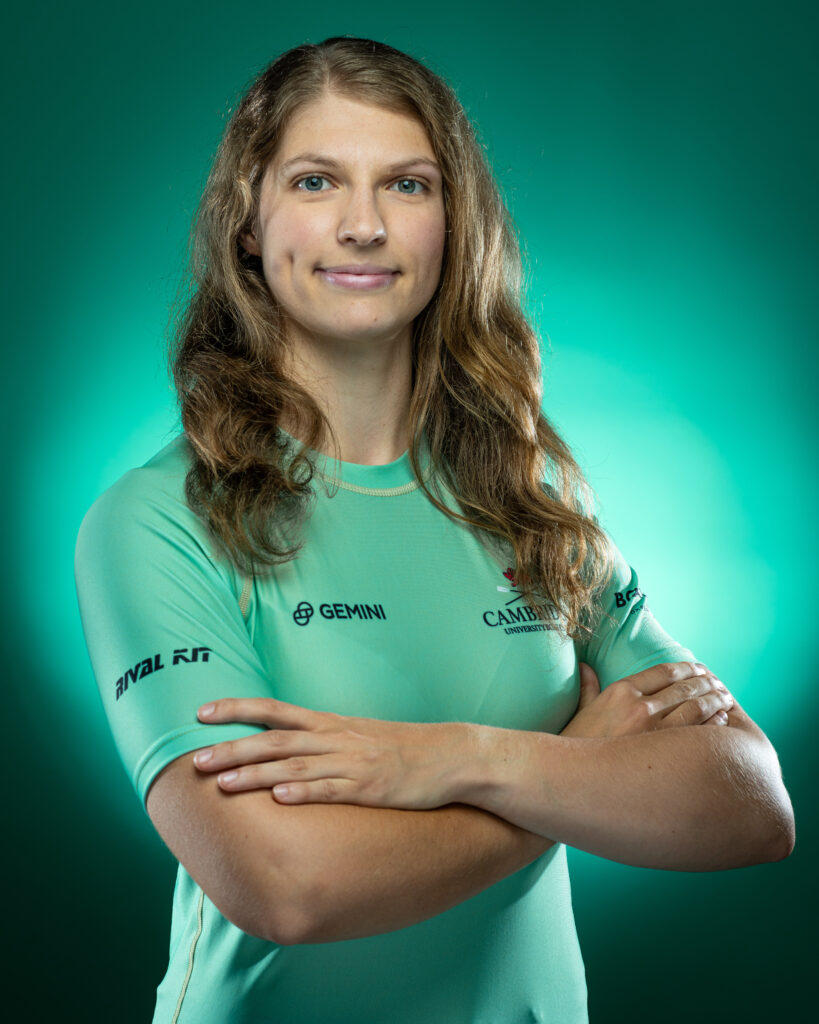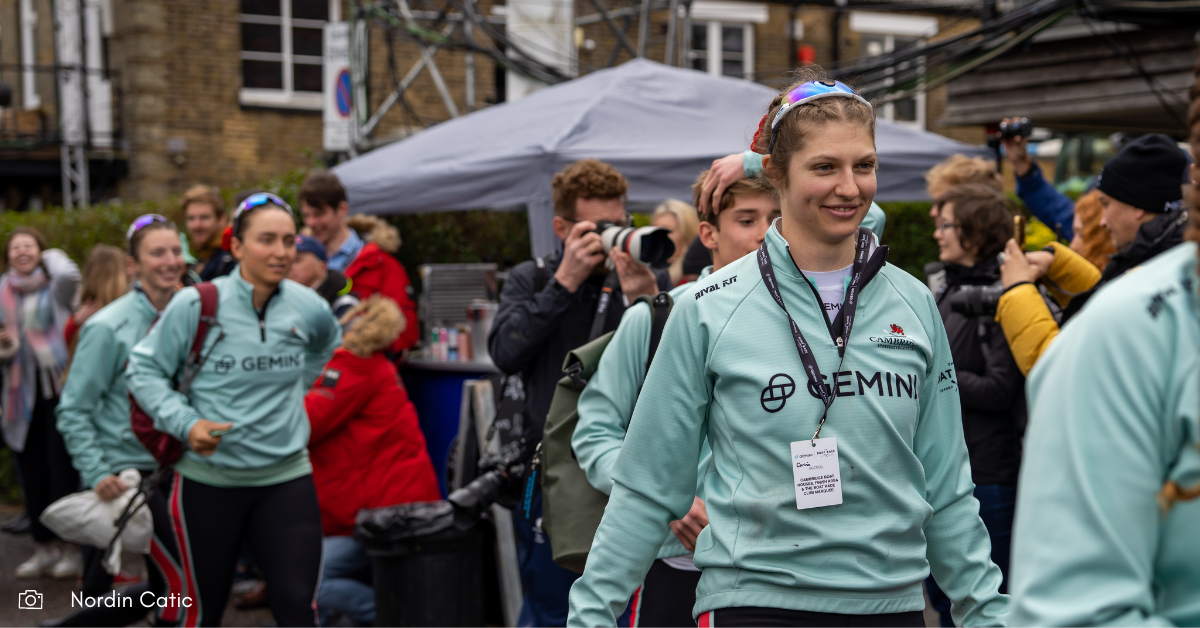Carina Graf, Emmanuel, is studying a PhD in Clinical Neuroscience, but still finds time for the challenging commitment of being in the CUBC squad. Having rowed in Blondie in 2022 and the winning Blue Boat in 2023, she brings valuable experience to her fellow rowers. Here she shares her story, the benefits of rowing and some lessons learnt along the way.
Firstly, how did it feel to be in the winning Blue Boat on 26 March 2023?
It felt exhilarating! As bow seat of the women’s Blue Boat, I had the pleasure of being the very first to cross the finish line on the day of the CUBC clean sweep.
Where did your passion for rowing start? Tell us a bit about your rowing career.
Originally a friend recommended rowing to improve mental health – they were definitely right, and of course it’s improved my physical health too.
I started rowing during my Master’s degree at the University of British Columbia in Vancouver, Canada. Since then I have been a semi-finalist in the Aspirational Academic 4- at HWR in 2022 and have won multiple medals at the BUCS regatta in both Intermediate and Championship events.

I’m particularly proud of winning the Intermediate 4+ at BUCS 2022, as well as a Bronze medal in the Championship 2- at BUCS 2023.
I originally got involved with CUBC during the 2021 Development Squad and really enjoyed the training and coaching I was able to access through it. You can read more about the Devlopment Squad here.
I’d say that makes you a pretty experienced member of the squad. What insights or lessons can you bring to the team?
Understanding that everyone’s trialling journey is completely different is key. It’s also essential to know the importance of taking care of oneself – both mentally and physically! I can also bring lots of baked goods 😉.
And what would be your advice for students who are interested in rowing but don’t think it’s for them or don’t have any previous experience?
Rowing training, just like most strength-endurance sports, can look really scary from the outside, but it’s really not, so I’d say just give it a go – what have you got to lose? Anyone can get into rowing, and the people you meet on your rowing journey make this sport so special.
What does a PhD in Clinical Neuroscience entail?
I develop new techniques for brain imaging using magnetic resonance (MRI) and heavy hydrogen (a rare variant of normal hydrogen) called Deuterium. We can bind this substrate into other molecules such as glucose, a specific type of sugar, and give it to cancer patients.
Deuterium metabolic imaging of glucose is a powerful tool for understanding how cells, including cancer cells, use glucose in the body. It can aid in early detection, precise localisation, and monitoring of cancer, ultimately leading to more effective and personalised treatment strategies. It has similar benefits to PET imaging when staging cancer, but does not require ionising radiation. For the past couple of years I have been researching the impact of COVID-19 on the brain – a collaboration with the University of Oxford.
That sounds intense! How do you find time to fit everything in?
Rowing teaches you many valuable lessons and one of those is to prioritise!
So what else has rowing taught you, apart from simply how to row?
The importance of kindness, compassion and patience, both towards your teammates and yourself. Sustainable progress and change cannot happen overnight, so it is very important to give yourself room to experiment and time to make these changes. Learning to set boundaries is also important, and supporting one another in high pressure scenarios.
What do you love most about being part of the rowing scene at Cambridge, and the community at CUBC?
I began my PhD during the pandemic in October 2020, as such opportunities to make social connections were quite limited. Rowing was a great way to meet people outside my own subject area and with a common interest. With CUBC in particular, I enjoy getting to know women from across the university, and getting to know the alumni who share their experiences from previous Boat Races.
It somehow makes a very intimidating place like Cambridge University feel a lot more comfortable!
Alongside preparing students-athletes to beat Oxford, as Carina’s story shows, rowing for Cambridge also has a positive effect on academic performance and instils valuable life skills like patience and resilience. A gift to the Pulling Together Fund enables CUBC to provide that experience to over 70 athletes each year, plus athletes (like Carina!) that come through the Club’s collegiate development programme. Join in CUBC’s annual month of giving by making a gift today.

